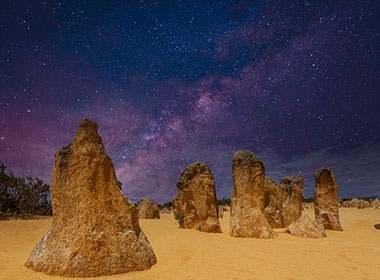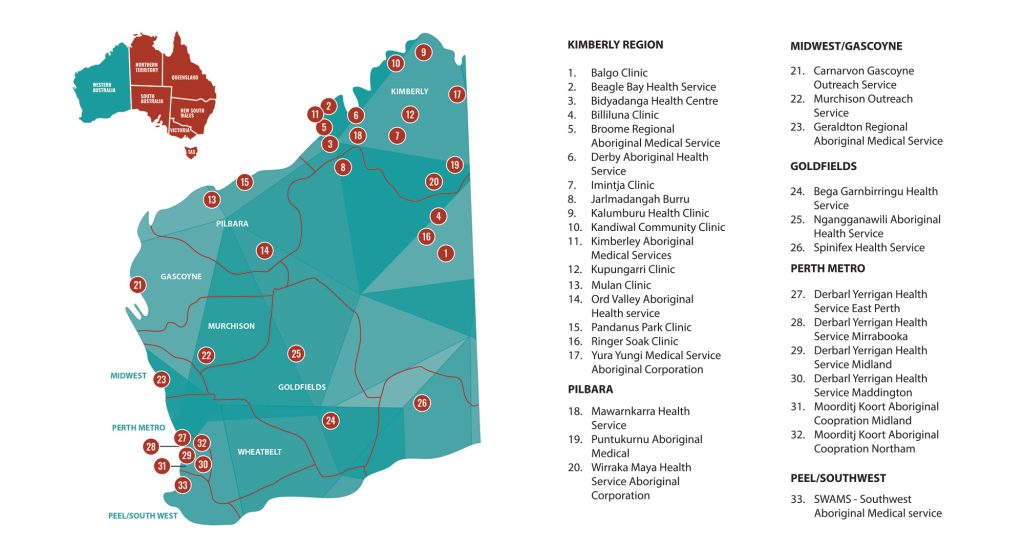WESTERN AUSTRALIA
JCTS Western Australia
We offer a wide range of opportunities for GPs across both metropolitan centres and rural communities in Western Australia. From the vibrant city of Perth located on the traditional lands of the Whadjuk Nyoongar people — to remote regions rich in cultural and environmental diversity, WA offers unique and rewarding experiences for GP registrars.
Our training presence spans across several traditional lands, including:
- Wadandi Boodja – Bunbury, Busselton, Yallingup, Augusta, and Nannup
- Wangkatja – Kalgoorlie-Boulder
- Yamatji – Mid West Region
- Wajarri – Geraldton
- Ngarluma – Karratha
- Yawuru – Broome
- Miriwoong and Gajerrong – Kununurra
Our focus is on providing a high-quality, supportive training experience that prepares GP registrars to meet the healthcare needs of communities across the state.
We are proud to have a strong relationship with the Aboriginal Health Council of Western Australia (AHCWA) and work closely with a network of accredited Aboriginal Medical Services (AMS).
These partnerships offer well-supported placements that provide an immersive experience in Aboriginal and Torres Strait Islander health, helping registrars develop skills in delivering culturally safe and respectful care.
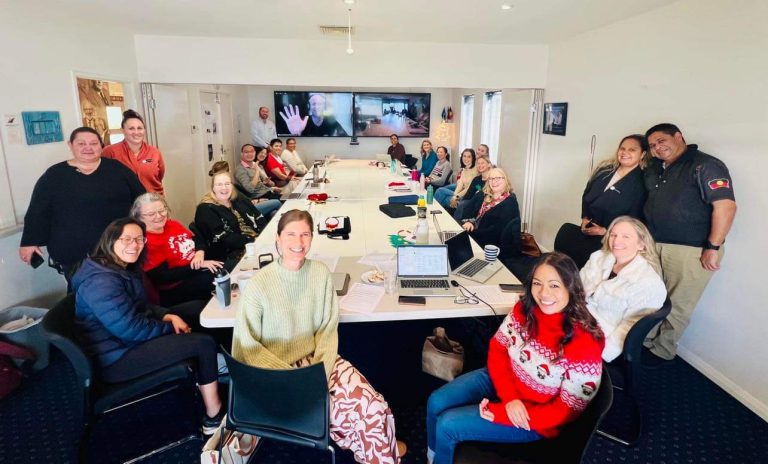
Cultural Education Workshop Reviews
Meet the JCTS WA team

Dr Babu Sajjad
Dr Babu Sajjad’s background spans over a decade in public and Aboriginal and Torres Strait Islander health leadership, operations, and strategy.
Before joining JCTS, Babu managed national programs at the Westerman Jilya Institute for Indigenous Mental Health, where he led operations across scholarships, clinical services, research, and partnerships.
A past career highlight was establishing the National Indigenous Psychology Treatment and Assessment Centre, which was led and delivered by Aboriginal and Torres Strait Islander psychologists, expanding culturally safe services to high-risk communities across the country.
Earlier in his career, Babu led integrated primary and Aboriginal health programs, as well as NDIS initiatives across regional Western Australia.
Babu is passionate about creating systemic change in health service delivery through culturally responsive, data-driven, and community-led approaches.

Lena THorne
Lena Thorne is a proud Whudjak, Wadandi, Wilman, and Binjareb (yorga) woman from the South West of Western Australia – Noongar Country. With deep roots in her culture and community, Lena brings a powerful voice and lived experience to her role as Cultural Educator at JCTS.
Having lived in Darwin for 24 years, Lena has built strong personal and professional connections across the Northern Territory. These connections continue to inform her approach to cultural education, strengthening her commitment to inclusive and respectful engagement across diverse Aboriginal communities.
In her role, Lena is dedicated to fostering a deeper understanding of the importance of cultural awareness in the healthcare sector. She works to support health professionals in building respectful, culturally informed relationships with Aboriginal clients.
Her goal is to help improve health outcomes through education that promotes mutual respect, understanding, and sustainable change.
Lena’s work is grounded in truth-telling, cultural pride, and a genuine passion for empowering both Aboriginal communities and the health professionals who serve them.
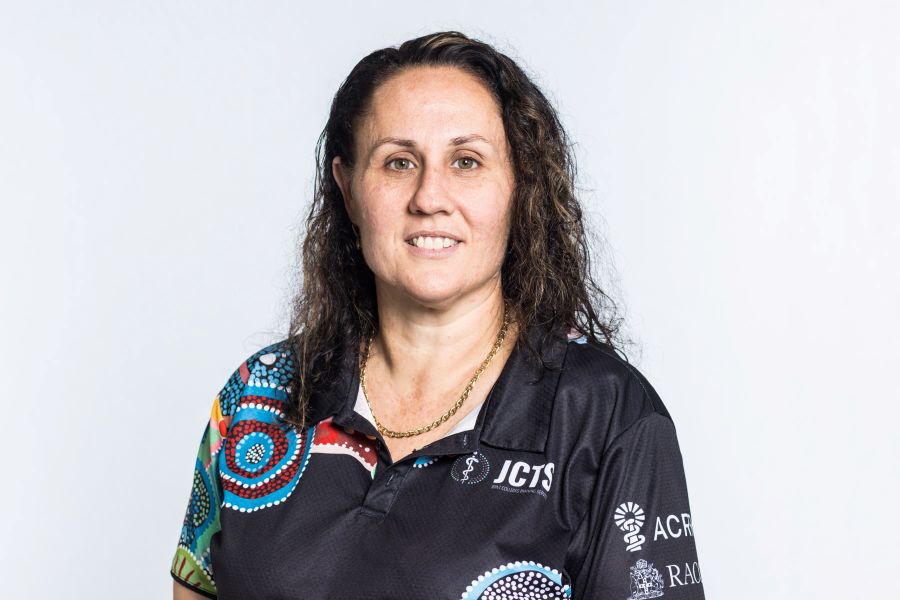
Kristie Russell

Anthony ABraham
Anthony Abraham is a Noongar man from Whadjuk Country, he is the Cultural Educator for Perth East, Wheatbelt, Kalgoorlie and Esperance.
Anthony is deeply connected to several Noongar families, including:
- Abraham – Bennell, Humes, Humphries
- Mippy – Harris, Nettles, Warrell
- Woods – Botheridge/Toovey, James/Jackup, Tucker
- Bolton – Barnett, Cornwall, Edgills/Riley, Triggs
Through his family ties, he is linked to 13 out of the 14 Noongar clans, such as the Yuet, Ballardong, Pindjarup, Wilman, Wardandi, Kaneang, Koreng, Bibulman, Minang, Njaki Njaki, Wudjari, Njunga, and more.
In addition to these, Anthony is connected to Wongatha, Njunga, and Larrakia Country.
As one of the Cultural Educator for Wstern Australia, he is committed to sharing Noongar culture and fostering greater understanding within our communities.

Jaime Rayson
Jaime is a Noongar Yok woman, born in the small town of Kojonup in the Great Southern region of Western Australia. Over the years, she has had the privilege of working across Government, Private sectors, and NGOs, always focused on supporting and empowering Mob. Jaime’s career journey has led her through diverse roles, including Education, Corrective Services, Community Development, Family Law, Suicide Services, and more. Each of these experiences has allowed Jaime to contribute meaningfully to the well-being of our communities.
Jaime is the Cultural Educator for the Perth South, Peel, South West, and Great Southern regions of Western Australia. This role offers the unique opportunity to work on her own Booja (Country), fostering a deep personal connection and an incredibly rewarding experience. What Jaime loves most about her work is the chance to travel, meet new registrars, and help them develop a deeper understanding of our cultural values and perspectives. Being part of JCTS allows Jaime to continue her lifelong commitment to serving and supporting our Mob in a way that feels both meaningful and impactful.
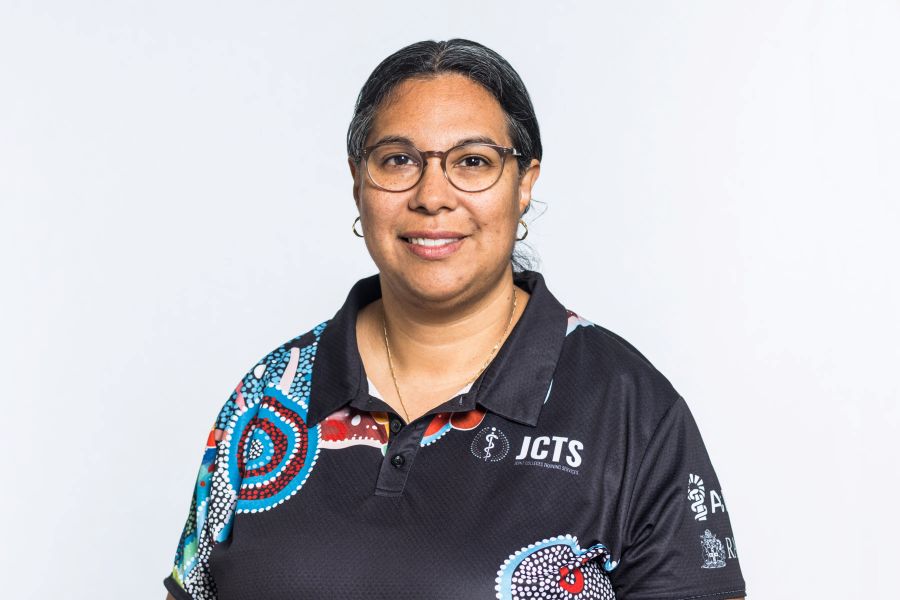
Dr Kim Issacs
Dr Kim Isaacs is a Yawuru, Karajarri and Noongar woman from the Kimberley and South-West region of Western Australia.
She is a General Practitioner with a strong background in rural and remote medicine and Aboriginal primary health care.
Kim has worked in remote communities in the Kimberley region as a GP and also within Aboriginal Community Control Health Service senior leadership.
As well as being a Medical Educator for JCTS, she is also a Medical Educator for the RACGP Aboriginal and Torres Strait Islander team.
Kim enjoys teaching GP registrars and medical students to ensure the next generation of health professionals have a strong cultural safety knowledge base.
She is a strong advocate for Aboriginal child development and for health services to improve meeting the health care needs of First Nations patients.
In 2020, she was awarded the Rural Health West Award for Clinical Leadership for her work and advocacy for rural and remote communities.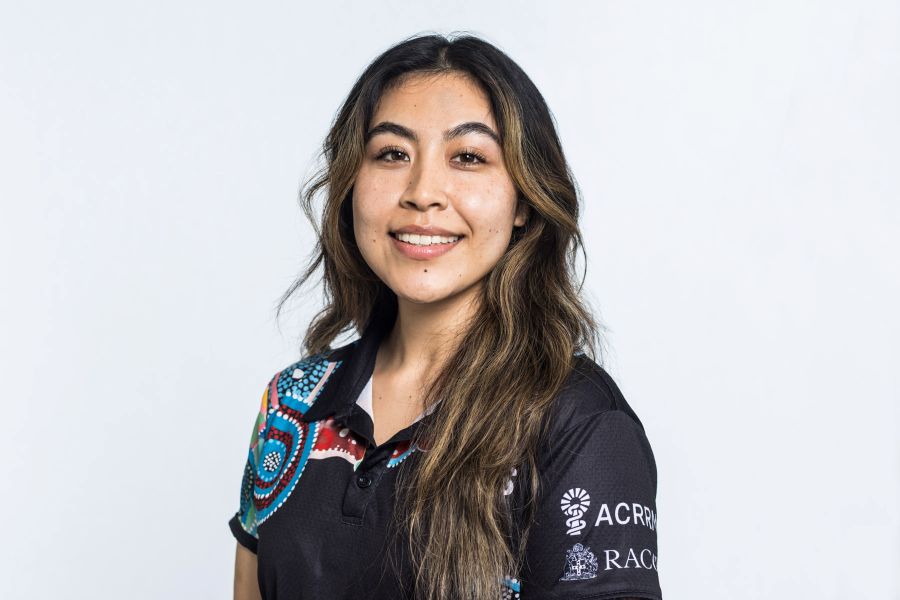
Voneisha Lopez
How we support Aboriginal Medical Services in WA
We are committed to providing culturally safe training and support for future General Practitioners. Our approach focuses on collaboration, education, and mentorship to ensure they are prepared to work with Aboriginal and Torres Strait Islander communities.
- Collaboration and Engagement
We foster peer support networks where GP Supervisors can share experiences, best practices, and insights on cultural learning. This collaborative approach helps to gain valuable perspectives about working in Indigenous health contexts. - Working with Practice Managers
We organise workshops, webinars, and networking events for Practice Managers and GP training representatives. These events promote dialogue and collaboration, ensuring they are equipped with the skills to support GPs, as they develop their cultural competence. - Practice Manager and Supervisor Support
We offer specialised training for GP Supervisors, helping them build on their cultural safety awareness. This training equips them to effectively mentor GPs in a supportive learning environment. - Access to Cultural Mentors and Cultural Educators
Through partnerships with local Indigenous organisations, leaders, and local community members, we can connect GPs with experts who provide culturally appropriate education. Cultural Mentors will guide GPs through the cultural aspects of their training, helping them to navigate Indigenous health contexts with respect and understanding.
Community Engagement
Supporting the GP Journey to Culturally Safe Practice
Being a GP means more than treating illness, it’s about understanding people, culture, and community. We can help GPs connect their medical training with the knowledge and experiences of Aboriginal and Torres Strait Islander communities across Western Australia. Through local partnerships, Cultural Mentors, and real-world learning experiences, we support GPs to develop the skills and understanding needed to provide respectful, culturally safe care, now and into the future.
Aboriginal Medical Services
Training in real, community-connected environments.
We maintain strong partnerships with Aboriginal Medical Services across WA. Through open communication and regular collaboration, we ensure placements are meaningful and grounded in shared goals. GPs will train in culturally safe environments where both their learning and the community’s health outcomes are supported.
Traditional Owners
Learning from cultural knowledge holders.
We support mentorship programs that connect GPs with Traditional Owners, Cultural Mentors and Cultural Educators. These mentors and educators offer guidance throughout the learning journey, providing cultural context, storytelling, and practical knowledge to help them navigate their role with respect and confidence.
Cultural Immersion Opportunities
Deepen understanding through lived experiences.
Cultural competency goes beyond the classroom. We offer immersive learning opportunities such as on-Country visits, storytelling sessions, and workshops. These experiences help participants engage meaningfully with Aboriginal and Torres Strait Islander culture and history—lessons that will stay with them for life.
Local Aboriginal Organisations and Businesses
Community voices shape experience.
We work closely with local organisations and businesses to gather feedback and input that directly influences healthcare programs and services. This means participants will gain insights into community needs and priorities—helping them to become more responsive and effective GPs.
Promotion of Culturally Safe Practices
Learn from best practice—then lead it.
We develop toolkits and shared resources that promote cultural safety in clinical training. Future GPs have access to materials and forums that highlight real-world examples, innovations, and lessons learned across Australia’s healthcare landscape.
Aboriginal Health and Wellbeing Providers
Training with and within community.
We partner with Aboriginal-led health services to co-design training that’s locally relevant and culturally informed. This collaboration ensures GPs are learning in spaces shaped by community voices, where knowledge and cultural awareness grow side by side.
About Western Australia
Thinking of relocating to Western Australia for work? Why wouldn’t you, WA is one of the largest and most diverse regions on Earth — a place where breathtaking landscapes, vibrant cities, and rich Aboriginal heritages come together to create unforgettable experiences.
From the sparkling shores of Perth to the rugged outback and tropical north, WA provides extraordinary natural beauty and deep cultural roots. Perth stands on the traditional lands of the Whadjuk Nyoongar people, with sacred sites still present throughout the city’s urban landscape coupled with Aboriginal history dating back more than 50,000 years.
Throughout the state, Aboriginal-owned tours and campgrounds offer immersive opportunities to connect with the land, learn ancient stories, and experience traditional knowledge passed down through generations. Each sub-region offers a unique opportunity to engage with the custodians of the land and experience their deep spiritual connection to country.
Discover WA through cultural centres, art galleries, and live performances showcasing internationally renowned Aboriginal artists, musicians, and dancers.
For further information, visit Tourism Western Australia.

